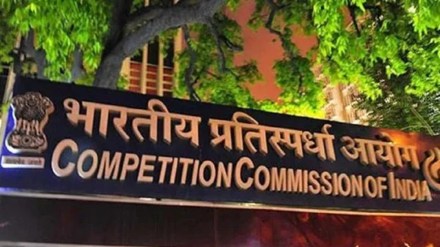The Competition Commission of India (CCI) is examining the practices of Google and Microsoft where they bundle AI solutions with office suites, to ascertain whether such integration of services will result in violations of Section 3(4) and Section 4 of the Competition Act.
“The CCI is internally studying the matter, and it might potentially translate into a detailed investigation. It is trying to build a case against the two Big Tech firms considering that such bundling could have an adverse impact on the companies offering standalone services like office suite,” said a source privy to the matter.
AI integration with office tools
In January this year, Google Workspace added its generative AI capabilities to both its business and enterprise plans. With this, Google Workspace plans now include access to the Gemini app, NotebookLM, and Gemini in Gmail, Docs, Meet, etc. Similarly, Microsoft integrated its AI service Copilot with its office suite Microsoft 365 in March 2023 to offer assistance on its products such as Word, Excel, PowerPoint, Outlook, Teams, etc.
The source said that if CCI, which is at an advanced stage of its preliminary research, finds this practice to be anti-competitive, it would issue an order and refer the matter to the investigation arm. “Tying and bundling are not illegal per se but they do require a prima facie assessment because they could likely cause harm to the competition,” the person said.
Competitors to Microsoft and Google in office suits space include Zoho, Zendesk, HubSpot etc.
Sections under review
Section 3(4) of the Act has an inclusive list of vertical agreements that could be held to be anti-competitive if they have an appreciable adverse effect on competition (AAEC). The list includes tie-in arrangements, exclusive supply agreements, refusal to deal, and resale price maintenance. Section 4, on the other hand, deals with the abuse of dominant position that impedes fair competition between the firms, exploits consumers, and makes it difficult for other players to compete.
An email sent to the CCI didn’t elicit any reply.
Experts said that CCI will have to evaluate if it can pursue the matter under Section 4 or under Section 3(4), whose scope was broadened through the 2023 amendment. “Since Indian competition law does not recognise the concept of ‘collective dominance,’ Microsoft and Google may need to be assessed in distinct relevant markets. Once an enterprise is found to be dominant, it assumes a ‘special responsibility’ and is held to stricter standards of fairness and transparency in its dealings with market participants. This generally results in heightened scrutiny of its commercial conduct,” said a competition lawyer.
Also, the antitrust regulator has previously refrained from intervening in nascent markets. “In 2019, the CCI delivered an order in favour of OYO which acknowledged that its hotel franchising services business was an emerging model within the hospitality sector. Since AI is still an evolving market in India, it might merit a similar, pragmatic approach,” said another competition lawyer.
